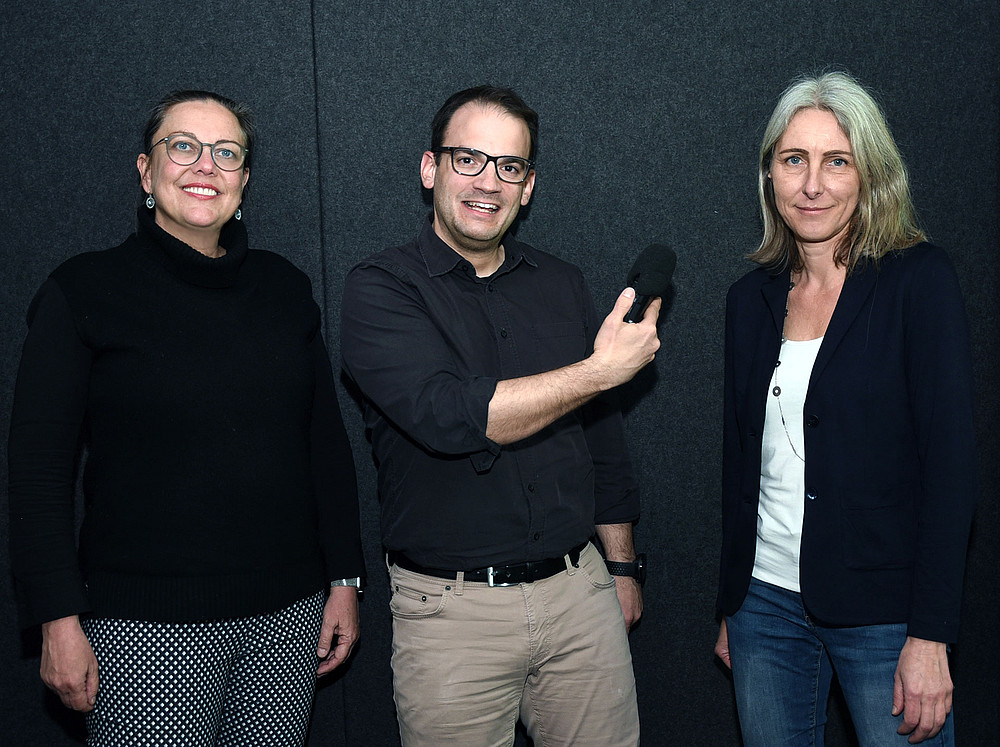Podcast Series - 2 Scientists Meet...
What happens when two scientists from completely different disciplines work together? What challenges do they face? What synergies arise, and why do they collaborate at all?
The podcast series "2 Scientists Meet (Treffen sich 2)" presents interdisciplinary and transdisciplinary researchers and their projects. The scientists are interviewed by Philipp Spitzer, who, as a chemist, physicist and science communicator, offers an additional perspective.
Social innovations for Graz
Ulla Kriebernegg (Professor of Cultural Studies in Aging and Care Research and Americanist, Faculty of Humanities) and Annette Sprung (Professor of Migration and Education, Faculty of Environmental, Regional and Educational Sciences) talk about their joint project "Caring-Living-Labs Graz. Shaping Urban Caring Spaces Equitably, in Solidarity and Diversity."
When does one count as old? What do cities need to improve to give all generations access to the local community? What is a "generation bank" and why is an individual's "migration background" a relevant area of research? Philipp Spitzer asked the two researchers in this podcast episode about social innovations in Graz.
Podcast Eps. I - Social Innovations for Graz (in german)
